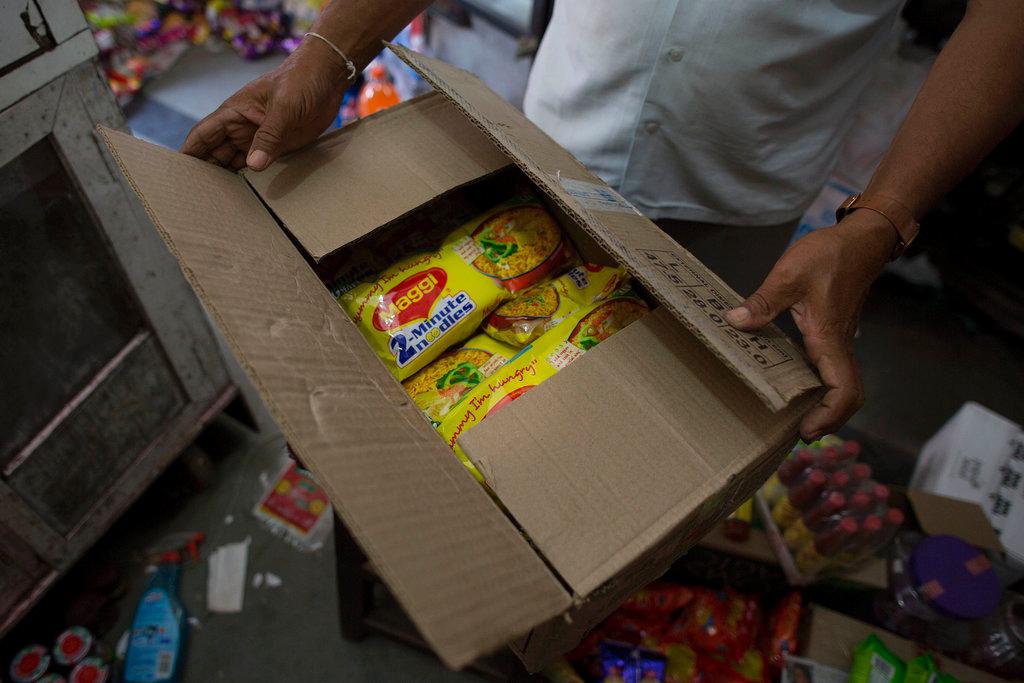Nestlé noodle recall in India a logistical nightmare

Nestlé is battling to shift almost 28,000 tonnes of Maggi instant noodles in India due to a ban imposed over allegations of lead contamination. It estimates that it will take at least 40 days just to destroy the recalled product.
The company spokesperson told swissinfo.ch that the recall operations began on June 7 and involved five factories, 38 distribution centres and 1,400 distributors. The company estimates that the noodles are sold in 3.5 million retail outlets in India of which half are not serviced by Nestlé’s distributor supply chain, making it tough to recall products.
Nestlé India is also struggling to find enough cartons to transport the noodles from the market to its units. The company is buying up cartons all over the country to meet its needs.
“We estimate that 40% of the 27,420 tonnes of MAGGI noodles we are recalling is no longer in cartons, but in packets on the shelves at home or in the retailers,” a company spokesperson told swissinfo.ch. “So we need to source 1.4 million cartons to move the packets of MAGGI noodles back to our facilities.”
Besides cartons, the recall exercise demands significant investment in transport facilities. The 27,420 tonnes of MAGGI noodles that need to be recalled would require 2,500 trucks. “MAGGI noodles are sold all over the country so many thousand truck journeys will need to be made to complete the task,” said the spokesperson.
Disposing of the noodles is also complex. Nestlé has obtained permission to burn the banned noodles in the incinerators of cement factories.
“The current capacity is 700 tonnes a day across the five incineration facilities, meaning that it will take at least 40 days to destroy 27,420 tonnes,” said the spokesperson.
It will also take a significant amount of time and effort to refund those who have paid for the noodles along the supply chain. Around 50 staff are currently working on this full time.
“There are multiple cash and credit transactions that need to be paid throughout the process as the product changes its hands on its way back to Nestlé India,” said the spokesperson. “This adds to the complexity of the situation.”

In compliance with the JTI standards
More: SWI swissinfo.ch certified by the Journalism Trust Initiative











You can find an overview of ongoing debates with our journalists here . Please join us!
If you want to start a conversation about a topic raised in this article or want to report factual errors, email us at english@swissinfo.ch.